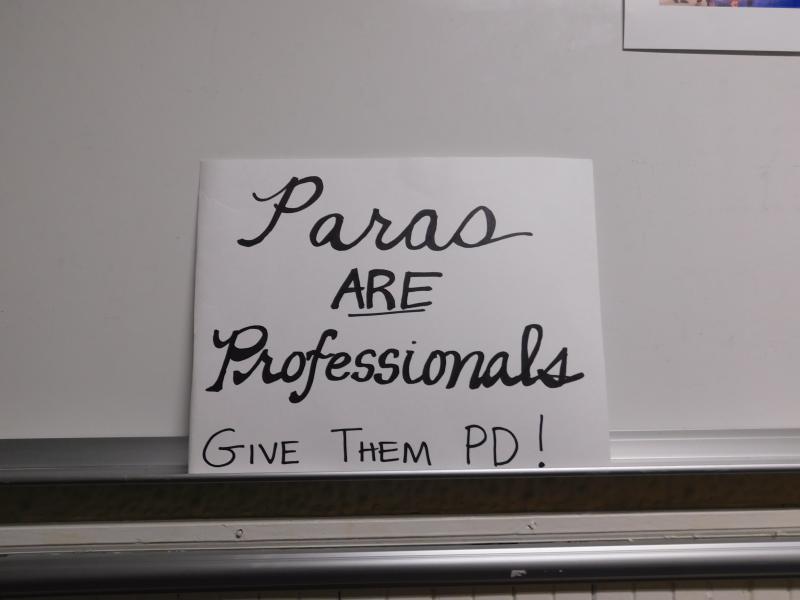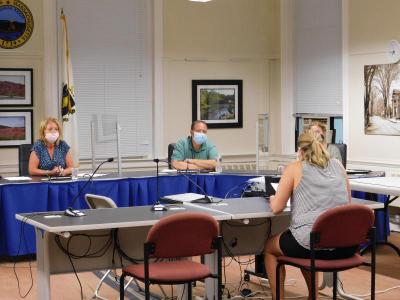Paraprofessionals, teachers speak out against proposed furlough
Wareham’s paraprofessionals are fighting a potential furlough.
At Thursday night’s School Committee meeting, nearly 20 paraprofessionals, occupational therapy assistants, and teachers gathered to oppose the furlough, which would cover the professional development before the first day of school and could continue into the school year.
The members of the School Committee were unable to comment on the matter because the district and the teachers’ union, called the Wareham Education Association, are still in negotiations.
The paraprofessionals and teachers argued that the material to be covered during the professional development ahead of the first day of school is just as vital to the para’s work as it is to the teachers.
Subject matter to be covered includes social emotional learning and the intricacies of the online platform to be used for virtual learning.
Paraprofessionals work closely with both teachers and students, often offering one-on-one help for kids who need it.
Jamie Pelletier, a paraprofessional at the high school, said that paras are student’s “personal cheerleaders, their emotional support
“I’m not sure if many people realize what paraprofessionals provide our students. We are their personal cheerleaders, their emotional support, a place they can come to to look for help with assignments. We hold them accountable, while holding a safety net ready to catch them and lift them back up to success,” said Jane Pelletier, who works as a paraprofessional at the high school. She said that she and the other paras act as life jackets for both students and teachers.
“To leave paraprofessionals out of this professional development would be detrimental to our student body,” Pelletier said.
“I have never missed any of the training that the teachers have had, because we’re doing the same thing,” said Marjory Rakoski. Rakoski, who has worked as a paraprofessional in Wareham schools for more than thirty years, pointed out that if paraprofessionals aren’t adequately trained, they will need to rely on teachers rather than being able to directly help students themselves.
“I’m not here for the money. That’s for sure. I’m here for the kids,” Rakoski said. She even spent time working with a student at his home this summer. “If they need the extra help, I’ll give it to them… You have to think of the whole picture. Someone’s going to have to train us.”
Occupational therapy and speech and language therapy assistants are also included in the union unit that may be furloughed.
Erin Wurlitzer is an occupational therapy assistant -- a job that requires her to maintain a state-issued license and pass an exam roughly equivalent to the one taken by licensed practical nurses (LPNs). Each year, she works with up to 40 students: developing and implementing therapies that align with the students’ individual education plans, consulting with parents and teachers, assessing students’ progress, and juggling students’ schedules.
“Whether remote or hybrid, the students need our specialized services, and we need time to plan how to help each individual student,” Wurlitzer said.
Several teachers spoke in support of the paraprofessionals, attesting to their importance within the schools.
“In the spring we were all catapulted into crisis mode. On the whole, [the paraprofessionals] rose to the occasion and even above. I think that should be recognized. They work very hard and they are, sometimes, the backbone of the school,” said Deanna Semple, the physical education teacher at the Decas School.
Sarah Greene, a special education teacher, said that paraprofessionals support student academic and social-emotional development, provide direct instruction, and are integral to making sure that students’ needs are met.
Negotiations are ongoing.













